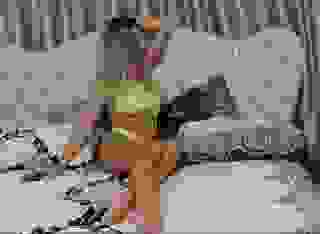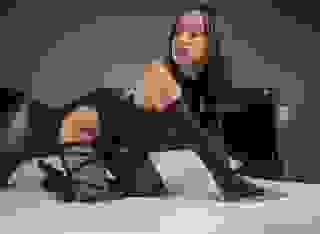- Erotic Horror
- The Wolves of Berlin
Note: You can change font size, font face, and turn on dark mode by clicking the "A" icon tab in the Story Info Box.
You can temporarily switch back to a Classic Literotica® experience during our ongoing public Beta testing. Please consider leaving feedback on issues you experience or suggest improvements.
Click hereNote: Though this is a sequel to "The Wolves of Paris," it is not necessary to have read that story first.
"You never kill anyone you want to in a war."
-Ernest Hemingway, "For Whom the Bell Tolls"
***
June 1, 1944, Paris:
1,440 days under occupation.
The streetlamp flickered, but did not go out. A pair of uniforms lurked on the sidewalk up ahead. Riquet's feet wavered, but if they saw him run away they'd surely chase, so he kept walking, readying his identity card and mentally referring to a list of excuses for being out late. He plucked at his priest's collar; it was useful on these occasions. Even the Germans knew that too many priests in the jails rubbed the locals the wrong way. "Good evening," he said.
"Good evening, Father," said one the policeman, an older man who had the look of one who might have retired already. "You're out late. I'm sure you know when curfew is."
Riquet shrugged and looked at his feet, as if grasping for an answer. Being too quick with an alibi was suspicious. "I want to lie, but I shouldn't," he said. "The truth is, I was meeting a man selling false ration cards." He affected his best pained expression. "I know it's against the law, but so many more people are coming to our church hungry these days. What am I to do?"
It was a good story, as far as it went. Black market food sales were technically a crime, but most flics had stopped bothering to arrest anyone for it. Many were dealers themselves. Still, they were obligated to make a token objection. "Buying from a black market dealer after hours?" said the younger officer. "And you, a priest?"
Riquet wrung his hands. "It's a sin. But God gave us a world in which we must sin to survive."
The policemen conferred with a glance and the younger one stuck out his hand. "Turn over the contraband and go straight home."
Riquet fished a card out. Some belts would have to be tightened, but better they walk away with these than with the incriminating material hidden in his other pockets. "God bless--" he said, but before he could say anything more a terrified, bloodied man ran up and grabbed him.
The stranger burst from a nearby alley like a wild-eyed apparition, his black-and-grey SS uniform soaked with blood. When he saw Riquet he threw his arms around him and tried to hug the priest's body, as if to shelter under it. "Mir helfn!" he screamed: Help me.
Riquet reeled and the policemen stared, dumbfounded. He tried to pry the bloody man loose without shoving him away and his hands were soon smeared with gore." It's all right," Riquet told him. "You're safe. We will find a doctor and--"
Then they heard it: a howl, like that of a dog, but louder and deeper. A huge shape emerged from the alley, something dark and bulky on four legs. It paused at the sight of the men, lowering its head and growling. The German screamed and collapsed. Riquet froze. The young policeman tried to run away but then froze too, huddled in the street with his arms over his head. The older one stood his ground and even had his hand on the butt of his pistol, but he didn't seem able to draw it.
The beast's paws scraped the paving stones. It bent its head toward the unconscious German and the flickering streetlight reflected off its fangs. Its yellow eyes held them all in the grip of a spell. Riquet looked at the fallen German. He could run away and leave the man here. This was war, after all. But this man has not been shot by Communists or blown up by a package bomb. This thing menacing him was unholy. Even under occupation, Riquet had obligations beyond war, beyond Germany and France. Stepping over the fallen SS man, Riquet held up his rosary and said: "Go away."
He meant to shout the words, but all that came out was a whisper. The beast threw its head back and howled again, a sound that made Riquet feel as if he were shaking to pieces. Lights flashed on in the windows overhead. The beast took two steps forward and seemed about to charge. Without thinking, Riquet reached into a secret pocket and brought out the other crucifix, the special one he'd carried for 20 years, all the while hoping he would never need it again. Raising it, he said, rather louder:
"GO AWAY!"
The monster stopped. It lips drew back over its fangs. Confused voices cried out and a brave few stuck their heads from their windows. Riquet felt a single drop of sweat run down his face. His fingers trembled and he expected death at any moment, but he didn't run. And then...
The monster vanished. Once it was out of sight the cold fear that had stopped Riquet's heart disappeared too. Sagging, he put the crucifix away. He had thought, for a moment, that it wouldn't work, that the gigantic wolf would rush him, and then...
But it had worked. He was alive. He had stared down the monster. This time.
He almost tripped over the fallen German as he turned around. With regret tinged by ambivalence, he realized there'd been no need to protect the man after all: he was already dead. It almost seemed like he'd been struck down by the beat's howl. Maybe he had been. Riquet rolled the corpse over and flinched, both because of the awful expression on the dead man's face and also because he recognized him: Max Heiliger, the banking magnate, until tonight one of the richest and most powerful men in occupied Paris. His injuries suggested he'd been attacked from behind.
"Don't touch him," said a voice. Riquet had forgotten the policemen. The young one had run away, but the older was still there. He had not let go of his gun. Riquet gently moved the man's fingers from the weapon.
"You stayed," Riquet said. "Few people have the courage. You've never seen anything like that before, have you?"
The policeman looked at him. "Have you?"
"A long time ago. I hoped I never would again."
"What was it?"
"Something worse than a war. Now, let me leave."
The policeman blinked.
"You'll have to go tell the Germans about this murder," Riquet said. "I can't be here when they come."
"You're a witness."
"They'll turn me over to the Gestapo. I saved your life. So please: Let me go."
Riquet didn't plead. He merely asked. After a moment the policeman nodded. "Wait!" he said when Riquet had turned around. He took out a handkerchief and wiped the priest's bloody hands. "There. Now go."
Riquet went.
When he sat down to pray that night, he found the words wouldn't come. He'd grown used to war, over the years, and he no longer feared for his own life. But tonight, for the first time, he feared for his soul. Tomorrow would be worse: he'd have to ask for help from the one person he'd hoped never to call on. It would be a dreadful burden to put on one so young. But those were the times they lived in: The old, the good, and the wise were all gone. Those who were left had to fight on as best they all could.
***
June 2:
1,441 days under occupation.
At first Bethanie thought it was a policeman at the door, which would have been bad enough. Then she realized that the uniform was not that of the Paris police but instead of the Militia and she almost grabbed the gun out of her laundry basket and shot him right there on the doorstep. Instead she swallowed her rage and said, as politely as she could, "Good morning. How can I help you?"
"Official business. Let me in."
She held the door open. The steamy air of the laundry poured out, only a little hotter than the morning outside. The Militia man removed his cap. He was young, full-cheeked, and mustached. His uniform did not fit him very well. The Militia: Vichy's answer to the Gestapo. The sight of a Frenchman wearing a traitor's uniform made Bethanie sick. And they even had the nerve to call themselves the "Free Guard." Pigs.
She set the laundry basket on a counter and commenced sorting its contents. She knew precisely where the gun was, so that she never had to give herself away by looking at it. The Militia man peered around the workroom. "There are so few people here," he said.
"All our men were sent off to work in the German factories."
"Happy volunteers in our labor exchange program," the Militia man said.
"Now we few girls must work twice as hard to replace the missing men. But at least the Germans all have freshly laundered clothes."
She allowed just the right measure of scorn in her tone. As always, she was playing a part: a downtrodden but beaten young woman, someone who resented the status quo but would rebel no more openly than an icy barb or a muttered aside. It was fine if the Germans and the traitors thought her a malcontent as long as they didn't also think her a saboteur and a spy. The Militia man said his name was Kerman. He did not bother to give rank or any other identification. He sat on an overturned basket and took a notepad and pencil from his breast pocket. "And you are?" he said.
Automatically, Bethanie gave the fake name on her forged ID. Kerman looked at his notepad. "Claire Chevalier? That's strange. It says here that your name is Bethanie Chastel. You're 18 years old, born in Nantess, and your parents were Ernest and Janine Chastel, both deceased. You have one older brother, Paul Chastel, presently incarcerated. You were raised by your paternal aunt, Sophia Chastel, also now incarcerated. In the four years since her arrest there has been no official record of you anywhere and no small speculation that you're dead, and now I find you working at this laundry service under an assumed name?"
He borrowed a sock from a basket to wipe the sweat off his brow. "Or am I mistaken?"
Bethanie's fingers twitched. She wanted to shoot him more than she wanted to continue breathing. But no; if he was here to arrest her he would have done it already. Plainly he had evidence enough. His game was something else. Blackmail, maybe. If she killed him it would only invite scrutiny from his superiors, who perhaps could not be bought off as easily as he would be. So, against her every instinct, she let him live again. "I don't know any of those people are."
"Is that so?" said Kerman. "On one hand I have your word and on the other the intelligence given by my contacts. Which of those should I find the more compelling?"
"Since I don't know who told you these ridiculous things I can't imagine. But I'm sure they're all wrong."
The Militia man looked at her. She looked back. The hiss of steam from the machines punctuated their stares. He knew she was lying. She knew he knew. He could do almost anything he wanted and she had no rights at all. And yet...
"It seems I'm in error. I won't bother you again."
He flipped his notebook closed and left. He didn't even pause to be shown out, but went himself and shut the door behind. He was gone so quickly that Bethanie had to blink to clear the faint outline of his figure from her vision. She held her breath, listening for the thud of boots, and the heavy bang of the door being kicked, and the shouts of policemen and maybe also voices in German, but nothing happened.
Betraying nothing, she busied herself with the laundry. The humidity of the workroom disguised her fear sweat. After 40 minutes she decided she'd waited long enough and, taking her basket (and her pistol), she went to the back of the workroom, passed the machines and the presses and the scattered washerwomen, and found the door. Not a hidden door; not even a locked one. Just a simple door that led down a flight of steps into the cellar. Once on the other side she heard the telltale click of a hammer drawn back in the dark. "A stranger was here," said a voice. "Are you alone?"
"You think I'd lead them here?"
"That isn't an answer."
"A Militia man was here, but he's gone now. I'm going to talk to Velin."
For a second there was no reply and she thought she might be shot anyway, but then the sentry showed himself: a pale young man with precisely pressed clothes. Fabien.
She followed him into the cellar. As soon as the lower door opened she heard the tumult of the newsroom, including the roar of the press that churned out stack after stack of newsprint day and night. The room swarmed with men and women, a hive of activity just beneath street level, the noise muffled by the hillside and the constant racket of the laundry. Lucienne was working the press with her one arm; she'd lost the other in an accident years ago, but she was still the best and the fastest operator they had. Velin was at the typesetter's desk, the corner of the workroom where they not only laid out each page but also forged counterfeit IDs, ration cards, and other necessary papers. Velin: young, smiling, a pacifist and, unlikely though he was, both their editor in chief and commanding officer.
Standing at his elbow in an ink-stained apron was Dulac: middle-aged, dour, and Velin's right hand. Tomas, the big, quiet American, lurked around doing small tasks. On the desk between them all was a page with a giant headline: "THE TRUTH ABOUT ALSACE." Each page of newsprint, paper, ink, lead, and everything else, was contraband, smuggled into the city at incredible risk or stolen straight from enemy supplies at an even greater one. The masthead was their group's name, the name of the paper, and their battle cry:
COMBAT.
Velin and Dulac were so deep in their argument about the headline that they paid Bethanie no mind even while she stood two feet away. Without waiting for them to finish their argument she said, "A man was here, looking for me. He knew my real name. He was with the Militia."
Everyone shut up. Velin leaned back a little. Dulac hunched forward. Nearby, Tomas stirred. "But he didn't arrest you?" Dulac said.
"You can see that."
"Blackmail then?"
"Maybe, but he didn't mention it. He seemed just to want me to know he knew."
"Did he give you a name?"
"A fake."
"I got a look at him," Fabien said. "I think his uniform was fake too."
Velin had still not said anything. Dulac looked at him. "What do we do?"
"Blackmailing Gustav?" Velin said after a moment. "Gustav" was the only name they knew her by; women agents were often assigned men's names as aliases. Velin shrugged. "For now we do nothing. If he didn't arrest her and he hasn't brought anyone along to raid the place then he's probably hiding something from his superiors, which could be good for us. But if he disappears they might investigate and we don't know what trail he's left that will lead them here. So we wait."
"Shouldn't we at least send Gustav away? She's been compromised." Dulac said.
"He's right," Bethanie said. Velin shook his head.
"That will just endanger whatever other circuit we send her to. For now the damage is done, whatever it may be. So let's all get back to work until we know more." Dulac scowled. Velin clapped him on the shoulder. "Nothing has changed: So Gustav might be arrested? So they might raid us at any moment? We assumed these things and a thousand worse ones when we got up this morning. They're only a little more likely now."
And that was it; nobody would question Velin when he made a decision, not even Dulac. This was the world they lived in, and Velin was their only safeguard. It had started with a few hundred printed sheets in one city, and now they had workshops all over France, distributing 250,000 copies a day, printing the truth about the war, the occupation, the Germans, and most of all about Vichy's lies. They answered to the Special Operations Executive in England, but only Velin could contact them. The fascists obeyed orders because they were too stupid and callous not to, but the men and women in the print shop and the thousands of others all over the occupied countries obeyed orders because they wanted to live. Alone, they would falter and drown.
Of course, they might anyway.
Bethanie left the back way and guided her bike into the alley. Only Germans were allowed to drive cars anymore. The metro was out of the question too, since Germans rode for free and the trains were always swarming with soldiers. A bike was the best way. In the basket Bethanie carried her grocery bag. Frenchwomen took grocery bags everywhere these days, as one never knew when a rare opportunity to buy food might present itself. In Bethanie's case, the bag had a false bottom, in which she hid documents. Her gun was there too. She was rarely without it. Even before the war her aunt had put her in the habit of going armed. "You are a Chastel," her aunt told her, "which means you're never out of danger."
She rarely thought about those warnings now, though. Everyone was in danger these days. Being a Chastel no longer made any difference, or so she told herself. She reviewed her day's appointments. The work was mundane, but vital: passing messages, picking them up, dropping off or retrieving supplies. "Liaisons" these chores were called, small work fit for a girl, but crucial. Information and supplies were their lifeblood. And though she was not ambushing Germans or blowing up railway lines, it was just as dangerous: death or Ravensbruck prison awaited her if caught. The laundry job was her cover. She worked there a few hours in the morning, did her real job in the afternoon, went home at curfew and ate potatoes cooked for six hours over a heater until they were soft enough to chew, then slept a few hours and did it all again the next day. This was the way a French girl went to war.
It was a hot day, and part of the heat came from too many people. Paris was a city of crowds, and a city of lines: lines to find out if there was food, lines to find out if there was fabric, lines to find out if there was word about a family member in prison. It was a city of fatigue and hunger, of blue-uniformed policemen and green-uniformed Germans and beautiful women and worn-looking old men. A city of empty, boarded-up shops, and yellow signs warning: "No Jews." A city where bicycles and pedi-cabs and even horses had replaced cars. A city of orders and propaganda, of fascism against Communism, of midnight shootings and daylight bombings and round-ups and executions. It was an old city, but in the face of a long, hot summer it was being born again, though as what no one could say. Everywhere Bethanie went people were talking about the news, whether it be rumor or Vichy propaganda or even updates from the forbidden BBC:
"The Russians are in Crimea," people said.
"The Allies are moving on Italy," said others.
"The Americans will land in Dover."
"No, in Normandy."
"General de Gaulle is with them."
"No, the British have arrested de Gaulle."
The Germans were in retreat. The Allied invasion was imminent. Everyone knew it, and everyone was afraid. The Germans might destroy the city before surrendering it. And would the Allies impose their own government when they came? Some, like Bethanie, yearned for the coming of General de Gaulle and his Free French Army. But he was a distant savior, one none of them really knew. Rescue from that front seemed like an improbable dream.
Paris was burning: The fire spread, person to person, street to street, anger and fear and even a kind of despair. But not Bethanie. Bethanie was cold. Hot-blooded people, people with bad tempers or who made stupid mistakes, were already in prisons or in their graves. If you wanted to live through this war, you had to be cold. She found the apartment block she wanted and brought her bike in. A bicycle cost as much as a pre-war car now, and she didn't dare leave it outside. She climbed the back stairs, trying her best not to pass too many people but giving a smile to those she did encounter. Her role today was the fun-loving girl out on the town, the silly doll sneaking off from her parents for some laughs with a girlfriend, occupation or no. When she found the apartment she wanted she knocked once. Her heart beat a little faster when she heard footsteps on the other side. Any door she knocked on could be answered by the police or the Gestapo. Any errand could mean betrayal, arrest, and interrogation. Any night could end in a cell, with her hands tied and an SS man standing over her with a sharpened length of wire while she sweated through the ropes and--








